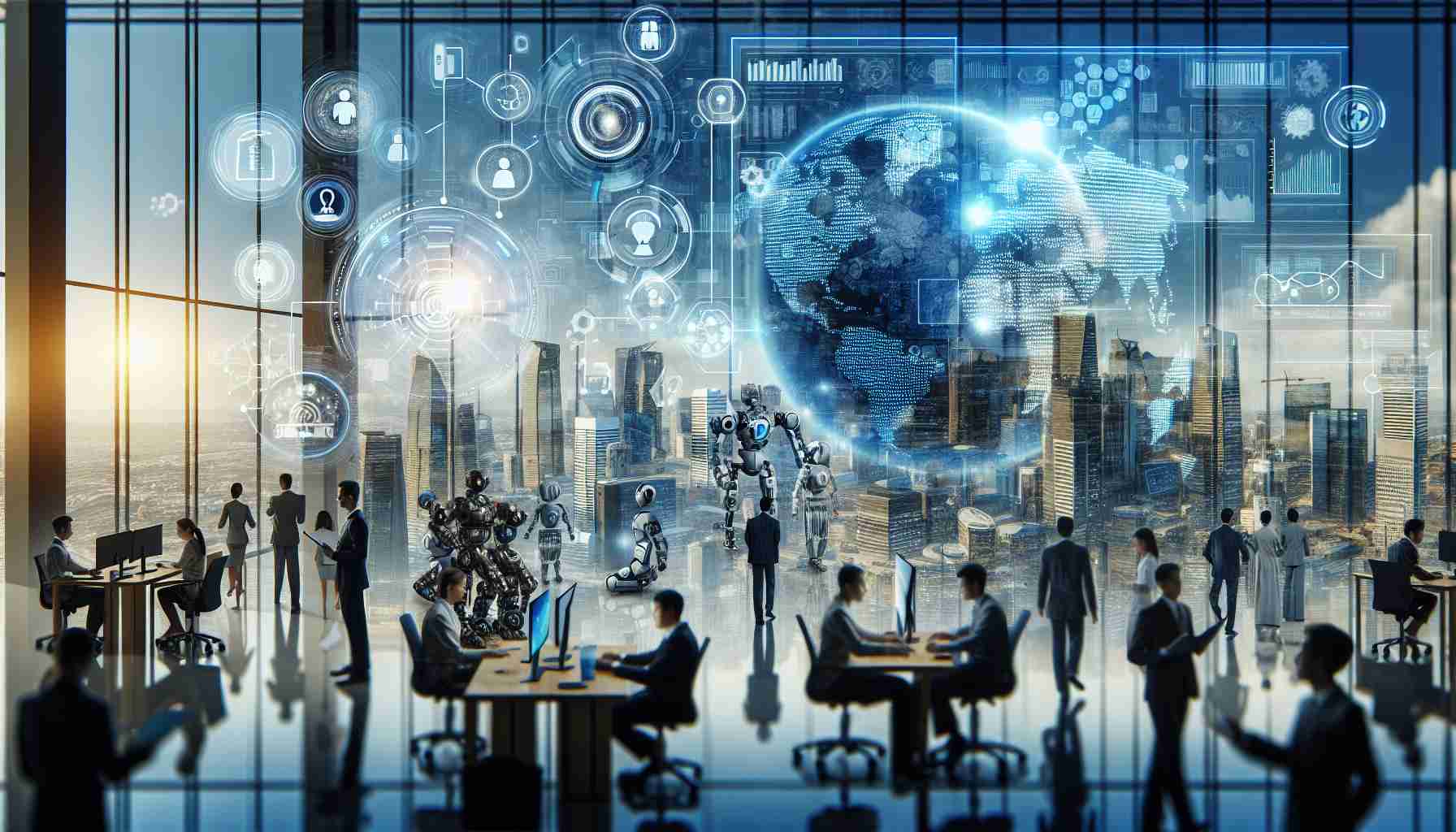In the burgeoning era of artificial intelligence (AI), the launch of sophisticated language models like ChatGPT in November 2022 marked a decisive turn toward mainstream visibility and application of AI technologies. The specter of AI’s potential to revolutionize various facets of life looms large, though its full effects remain difficult to predict, especially concerning global employment trends. Ideologies typically either anticipate these changes eagerly or view them with alarm.
Investment banks such as Goldman Sachs align with more cautious stances, suggesting generative AI – applications capable of producing original content – may potentially automate up to one-quarter of current jobs. Their studies project a transformative impact equivalent to 300 million full-time positions worldwide. Yet, jobs like cooking and auto mechanics seem largely unaffected by this trend.
Similarly, McKinsey & Company speculates that up to one-third of work hours in the US market could be automated by 2030, accentuating a trend now expedited by generative AI advancements.
The diversity of AI’s impact across sectors is notable; natural science, creative, and legal sectors may see job enhancement, while office and customer service roles might face declines. The notion posed by economist Richard Baldwin encapsulates a prevailing wisdom: it is not AI itself that supplants jobs, but those who adeptly leverage AI who will disrupt the labor market.
The International Monetary Fund (IMF) examines the evolution of employment from a global perspective, noting AI will significantly affect nearly 40 percent of jobs. The IMF’s Managing Director, Kristalina Georgiewa, references a comprehensive study indicating a significant transformation at the cusp, potentially boosting productivity and global growth. However, she also notes the possibility of job displacement and deepening inequalities.
Advanced economies are posed to face greater risks but also possess more opportunities to expand their advantage due to a higher proportion of skilled jobs affected by AI. The IMF acknowledges that while some high-skilled jobs will become more efficient with AI, others may experience decreased demand and lower wages, potentially leading to job eradication in extreme scenarios.
The sentiment echoes throughout various studies worldwide, including one from PwC Austria. A whopping 87 percent of Austrian company HR representatives view AI as a promising prospect for their workforce, with a majority believing that it will revolutionize their operations. However, an acknowledgement persists that ongoing AI education and training are paramount to harness AI’s potential and maintain competitive success.
Echoing the past sentiments on automation, Horst Bischof, Rector of TU Graz, acknowledges job displacement but maintains a positive outlook, suggesting history has consistently shown that automation tends to create more jobs than it replaces.
Key Questions and Answers:
1. How will AI impact the job market?
AI is expected to automate a significant portion of jobs, potentially improving efficiency and productivity. However, it may also lead to job displacement, particularly for roles that are repetitive or require less human creativity.
2. Which sectors are most likely to be affected by AI?
Jobs within sectors like natural science, creative industries, and legal services may see enhancement due to AI, whereas office and customer service roles might decline. Advanced economies with a higher proportion of skilled jobs may experience both greater risks and opportunities.
3. What is the role of education and training in adapting to AI?
Ongoing education and training are crucial for workers to stay relevant in an AI-dominated job market. Upskilling and reskilling will allow workers to leverage AI rather than be displaced by it.
Key Challenges or Controversies:
– Job Displacement: While AI can boost efficiency, it may also displace workers, leading to unemployment and social issues if transitions aren’t managed properly.
– Inequality: AI may exacerbate existing inequalities; countries and individuals that can adapt quickly to AI will benefit, while others may fall behind.
– AI’s Ethical Use: The potential misuse of AI in the workplace, such as for monitoring employees, raises ethical concerns.
Advantages:
– Increased productivity and economic growth.
– Job enhancement for certain skilled positions.
– New job creation in AI development, oversight, and support sectors.
Disadvantages:
– Reduction in demand for traditional jobs and possible job losses.
– The need for a significant investment in reskilling the workforce.
– Potential for increased socioeconomic disparities.
For further exploration of AI’s impact on job markets and related discussions, you may visit reputable sources such as the International Monetary Fund at IMF or studies from consulting firms like McKinsey & Company at Mckinsey.

